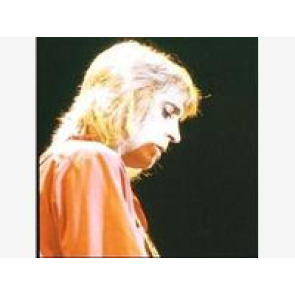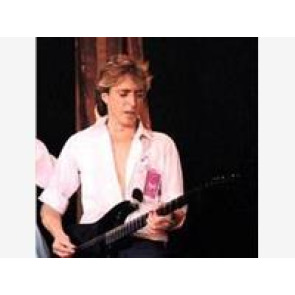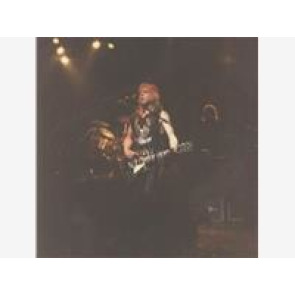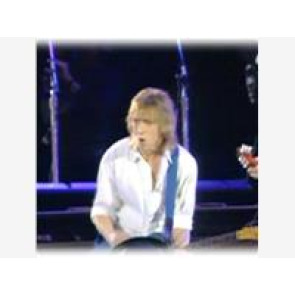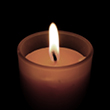MICK RONSONNobody did more to setDavid Bowieon his way to fame and fortune than Mick Ronson, who died on 29 April, 1993, aged 46.
As a member of the famous Spiders From Mars band, hislead guitarwas at the fulcrum of David Bowie’s scintillating successes of the early 1970s.
Mr Ronson’s reputation as a writer,musicianand performer led to him working with an array of other musical greats such asBob Dylan, Morrissey and Mott the Hoople.
But as well as the great and the good, the former mechanic and council gardener also had a passion for trying to help unknown bands gain their big break.
Michael Ronson was born in Hull, East Yorkshire, on 26 May, 1946. He had an early eye formusicand could play the piano, violin and harmonium but switched to the guitar after becoming a big fan of The Yardbirds and Duane Eddy. At 17 he joined his first band, The Mariners, before another Hull group The Crestas recruited him.
He left to try his luck in London in 1965. He worked part-time as a mechanic and teamed up with a band called The Voice and, briefly, a soul band called The Wanted, before returning to Hull.
In 1966 he joined Hull’s The Rats, whom were popular locally but could not find success beyond. When John Cambridge left The Rats, they recorded a final session in 1969. In 1970 John Cambridge returned to Hull in search of Mr Ronson, intent upon hiring him for a new David Bowie backing band called The Hype. He found Mr Ronson, who was a Hull Council gardener, marking out a rugby pitch.
Two days later he made his debut with David Bowie onJohn Peel’sSunday Show. The Hype played their first gig at The Roundhouse supporting Noel Redding’s Fat Mattress, with a line-up that included himself, David Bowie, John Cambridge and producer/bassist Tony Visconti. The group dressed up in superhero costumes, with Mick Ronson as Gangsterman, David Bowie as Rainbowman, Tony Visconti as Hypeman and John Cambridge as Cowboyman.
In April 1970 the band started recording David Bowie’s The Man Who Sold The World album. The backing ensemble, which by now included Trevor Bolder on bass and keyboardist Rick Wakeman, was also used in the recording of Hunky Dory.The departure of Tony Visconti meant Mr Ronson, with David Bowie, took over the arrangements. His orchestral arrangements showcased a far more melodic batch of Bowie songs and Hunky Dory was perhaps their most collaborative album.
It was this band, minus Rick Wakeman, that became known as The Spiders From Mars from the title of the next David Bowie album. Again, Mr Ronson was a key part of The Rise and Fall of Ziggy Stardust and the Spiders From Mars, providing string arrangements and lead guitar.
This album returned to the rock-oriented music of the earlier album, with his guitar heroics providing the perfect frame for David Bowie’s doomed rock star role.
During this time, he also co-produced Lou Reed’s seminal album Transformer with David Bowie and played piano on Perfect Day. His guitar work was next heard on Bowie’s Aladdin Sane. Many believed Mr Ronson’s contribution to Bowie’s output was becoming indispensable, so it was a surprise he was absent from the Diamond Dogs album.
After leaving David Bowie’s entourage in 1973, he later released three solo albums. His debut Slaughter on 10th Avenue featured his most famous solo track, Only After Dark. Between this and the 1975 follow-up, Mr Ronson had a short-lived stint with Mott the Hoople and became a long-time collaborator with singer Ian Hunter. His second and third solo albums were Play Don’t Worry (1975) and, much later Heaven and Hull (1994). The latter wasn’t finished because of Mr Ronson’s death and was released posthumously.
During his lifetime he also worked as a musician, writer and producer with many other acts including Morrissey, The Wildhearts and Elton John. He also had a lifetime passion for helping unheralded artists and he assisted many local bands along the way. Mr Ronson was also a member of Bob Dylan’s Rolling Thunder revue live band. His last live appearance was at TheFreddie MercuryTribute Concert in 1992. He died of liver cancer.
Despite his relatively young death, Mick “Ronno” Ronson made a huge impact on rock music for more than 20 years.
His work with David Bowie during a golden era in the 1970s spawned classics songs such as Changes, Life on Mars, Suffragette City and Starman.
Their chemistry on stage and memorable Top of the Pops appearance in 1972 where David Bowie put his arm around him shocked many.
But, in his own modest manner, Mr Ronson once said: “What I’m good at is putting riffs to things and hooklines: making things up so songs sound more memorable.”
Keep me informed of updates

